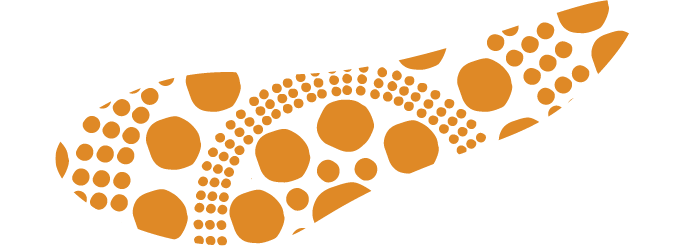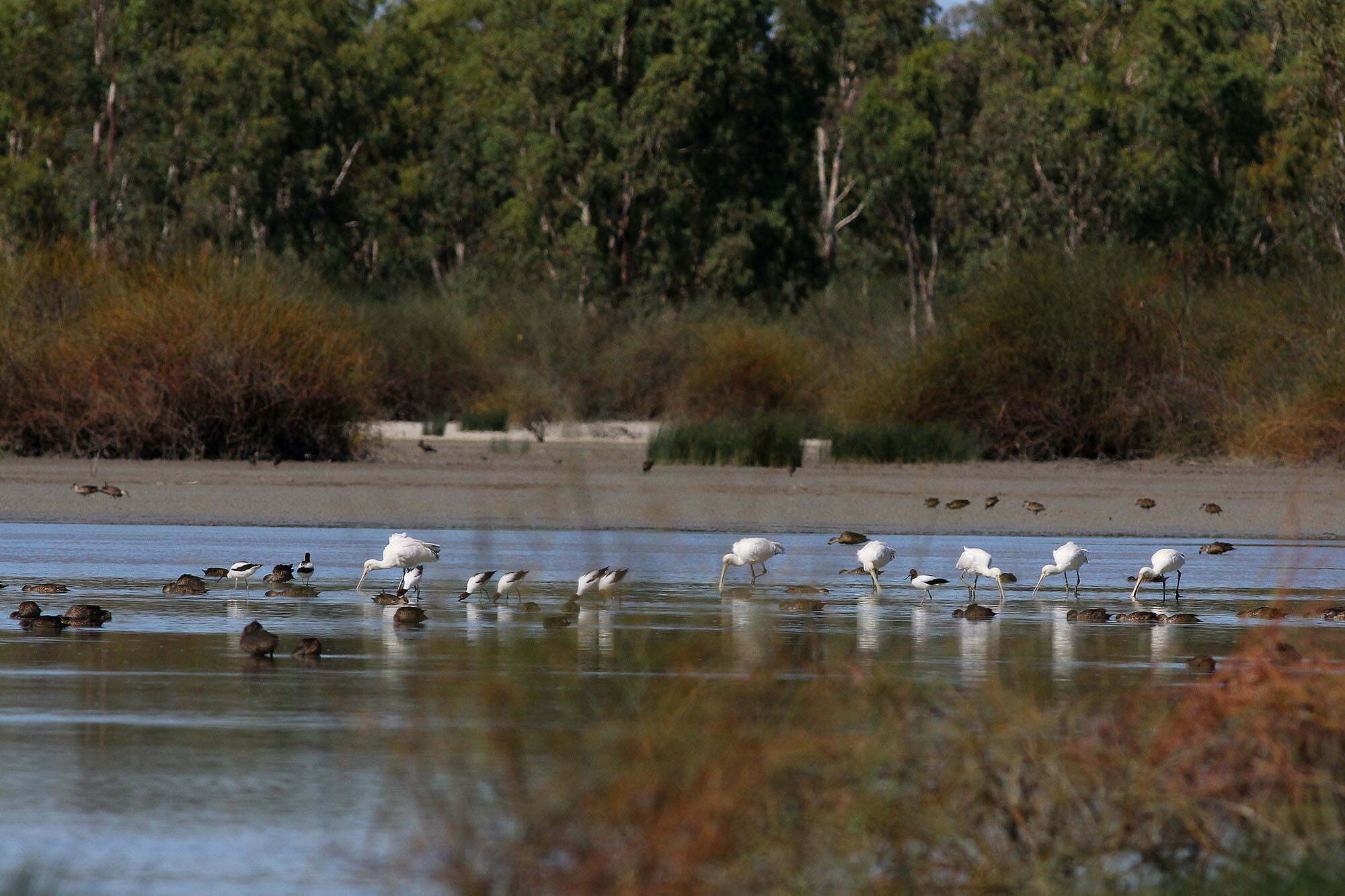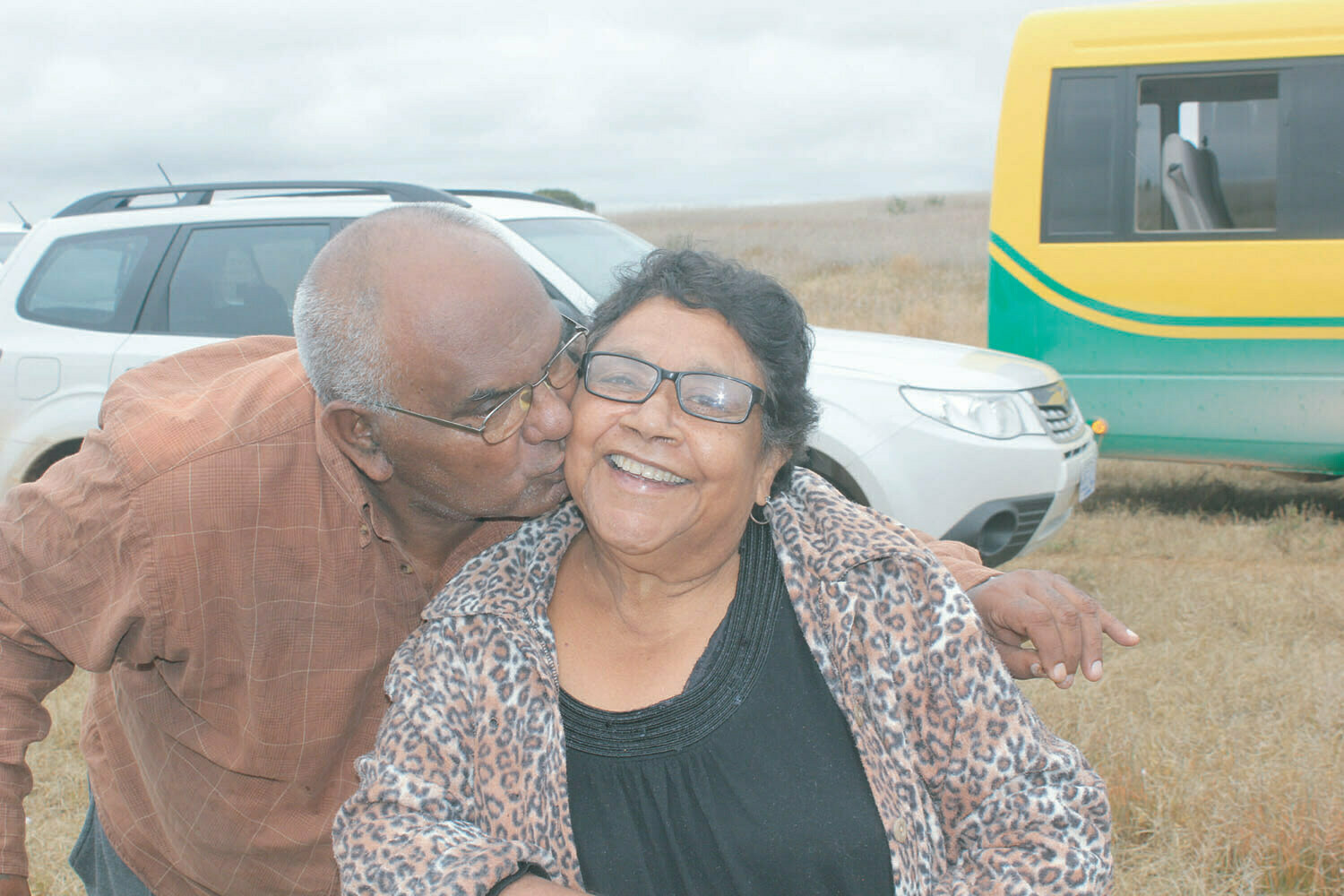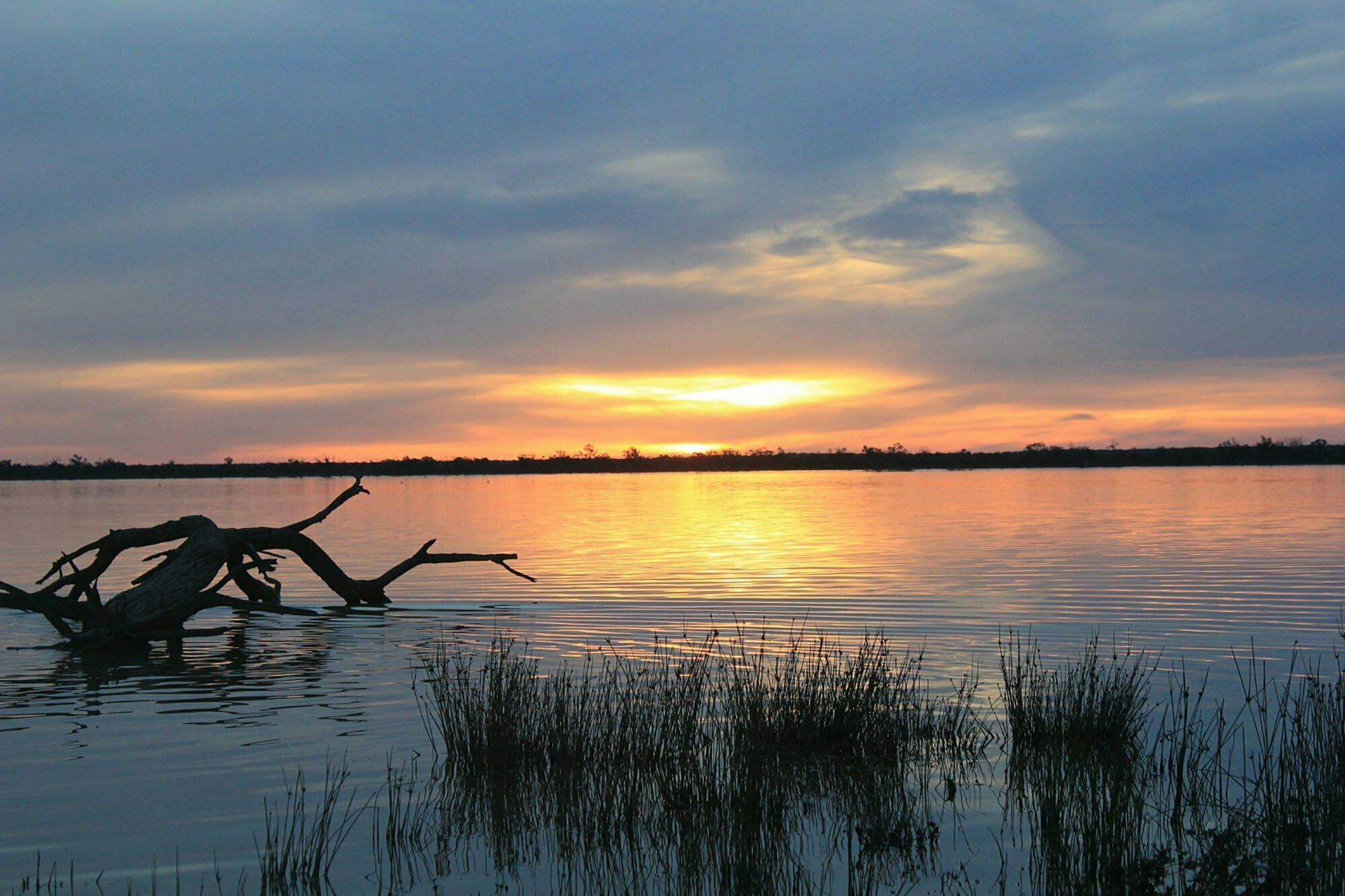Listening to Elders — Chowilla Floodplain Water
First Peoples of the River Murray and Mallee Region (South Australia)
First Peoples of the River Murray and Mallee Region (South Australia)

We acknowledge the traditional lands of the First Peoples of the River Murray and Mallee Region and that we respect their spiritual relationship with their country. We also acknowledge the First Peoples as the custodians of the River Murray and Mallee region and that their cultural and heritage beliefs are still as important to Traditional Owners, the living Ngaiawang, Ngawait, Nganguraku, Erawirung, Ngintait, Ngaralte, and Ngarkat people of today.
“To bring back vegetation, wildlife, fishing, hunting and gathering as was done in the old days — so that all would not be lost”
– Norman Wilson — Ngintait
The following story was developed by Fiona Giles, First Peoples Coordinator, Department of Environment and Water in South Australia.
Norman Wilson, also known as Uncle Tinawin, is a respected Elder of the Riverland Community. He has strong spiritual and family connections along the River Murray within South Australia, and over the border into Victoria as his Great-Great Grandfather John Perry, was born in the area that is now known as Chowilla.
As a Traditional Owner and an Elder, Uncle Tinawin has been concerned about the environmental impacts that have occurred over the years, as he has vivid memories of fishing, shooting and hunting when the Country was plentiful and abundant with wildlife and fish and has witnessed the gradual degradation of the health of the river, surrounding floodplains and the ongoing effects that this has had on his culture.
Since 2014, Uncle Tinawin has been involved with the First Peoples Working Group, which was formed by DEW to engage with the First Peoples of the River Murray Mallee Region. Attending these meetings has given him the opportunity to undertake on Country activities such as the Aboriginal Waterways Assessments, community field trips and the cultural heritage protection of sites that are being affected by infrastructure development and environmental changes.

Image: Waterbirds feeding at Chowilla. (Photo source: H Kieskamp)
Uncle Tinawin enjoys working closely with people of expertise such as archaeologists and DEW Staff to share knowledge, stories and information so they can learn from each other on caring and protecting Country as he is not in support of infrastructures on-Country such as the Chowilla regulator and man-made structures because, “it doesn’t give a natural feel to Aboriginal People”. However, he said he is learning to adapt and to accept that these play an important role in the waterways compared to if there weren’t any infrastructures.
Uncle Tinawin agrees that there are cultural benefits from the environmental water delivery projects and has seen how environmental water has revitalised the vegetation and brought back the wildlife on the Chowilla floodplains. “Environmental watering is about as good as it gets to continue to do cultural activities.”
Uncle Tinawin is happy with the current involvement of the Traditional Owners in environmental water planning, but he does feel that his concerns have not always been fully heard when decision making has already been sealed at the government level. “All we can do at a ground level is continue to be involved as Traditional Owners and fight for the rights to cultural water flows and values to practice traditional cultural activities.”
Uncle Tinawin stressed that the importance of involving Traditional Owners from day one, when consultations and negotiations on regulator locations and other aspects are happening as this gives the opportunity to have valuable input from the start, and for Traditional Owner views and wealth of cultural knowledge of Country and waterways to be included. This way, as a Traditional Owner Uncle Tinawin would feel a part of the whole process, not the end or the middle of the process. “We are a part of it step by step.”
“It is important to maintain the natural state of areas along the river to take the kids for cultural activities”
– Jenni Grace

Image: First Peoples of the River Murray and Mallee Region Elders: Norman Wilson and Jennifer Grace (photo by Fiona Giles, SA Dept Environment & Water)
The same questions were asked of Jennifer Grace, a Nganguraku Elder known as Aunty Jenni. She had similar views that times have drastically changed and water is a problem everywhere.
As a child, Aunty Jenni lived a semi-traditional, nomadic way of life on the river, the surrounding floodplains were abundant with everything they needed to survive, vegetation was thick and there were plenty of good hiding spots for her and the other children to hide, to avoid being taken by the Authorities, as those were the times of the “Stolen Generation.”
Aunty Jenni was just 6 years old, living on Nildottie (Tartanga) Island when the 1956 flood washed away everything they owned, she had never lived in an actual house until she was 17. Jenni learnt to survive and hunt in all sorts of conditions along the river as there was no Centrelink in those days and it was a matter of survival.
Aunty Jenni enjoys attending the on Country tours to see how things are working environmentally and how DEW Staff are bringing the floodplains back to their natural state.
Access to Country is a concern for Aunty Jenni as a lot of areas along the river and surrounding floodplains are private property. Access to Country is important to Aunty Jenni as she loves to take the younger generation out on-country to teach them how she survived, how to respect the river and in return the river will respect you, this is so that our culture is respected and not lost.

Image: Sunset at Lake Limbra (Photo source: C Nickolai)
Where are the opportunities for improving engagement with First Peoples of the River Murray and Mallee Region?
Inclusion
Traditional Owners need to be included from the start. Always have respect and regard for the Elders.
Ecological outcomes
First Peoples need to be informed of flora and fauna species that benefit from environmental watering Projects.
Land use
Use of satellite images and topographic maps, highlighting Crown Land, private property, game reserves and all access points for all on-country tours, site visits and field trips.
Where to next?